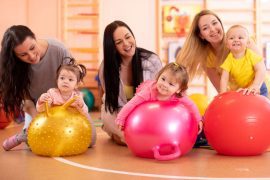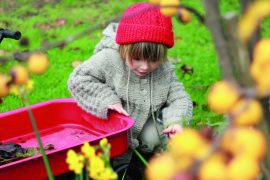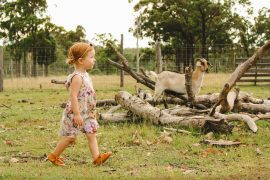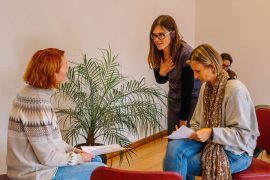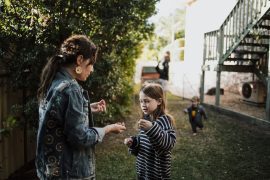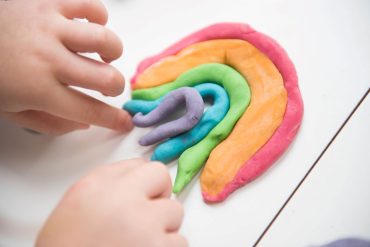Positive
We want to create positive associations with language learning so that our children develop a hunger for more. We can do this by finding times throughout the day to praise them for beautiful talking and avoiding asking them questions all day. When we ask too many questions, it can begin to feel as though we are testing our kids. Find the joy in adding language and having positive conversations with your kids.
The beauty of nature is that it provides the perfect playground and meets all of the criteria.
Pop your coats and gumboots on and find ways to build nature walks, beach exploration, and garden play into your day.
If you don’t have nature on your doorstep, find ways to bring it to your kids with indoor plants, pets, planting seeds, and herbs.
There are two natural strategies that we encourage you to use as parents throughout your day so that you can avoid negativity and constantly correcting your kids.
Modelling with Repetition
Children aspire to be like adults. We have the opportunity as parents to be the best model we can be so we need to consider what language we use and add language to our child’s day in context. The difference with toddlers is that we need to add a little more repetition to the language we use so that their brain has the opportunity to store the information accurately.
Recasting
This is a form of correction where we don’t stop the conversational flow or draw direct attention to an error. We repeat back how the words could have been said so that their brain only hears accurate examples of how to say the word they said incorrectly.
Here are a few examples:
Child: “That ladybug is a boy, she likes flying.”
Adult: “Oh, a boy ladybug, he likes flying, he is a pretty ladybug, he has so many spots on his back.”
Child: “That’s a big tat.” (meant to say cat)
Adult: “You are right, that is a big cat, a big white cat, I wonder if that cat likes eating tuna?”
The criteria and natural strategies that I have outlined can be used for more than just language development.
There are many skills that are beneficial for children to have as they approach kindy, which include: a wide vocabulary, comprehension skills, a variety of play skills, and an ability to have social interactions with others.
These are foundational skills which set them up to be strong learners when it comes to literacy and academic skills.
Key takeaways?
Learning the alphabet and doing flashcards can wait; get outdoors, be in the moment and add language to those beautiful shared moments with your kids.
Alex Trichilo has been a Speech Pathologist for 11 years working in a variety of paediatric settings. She is extremely passionate about providing parents with accessible, affordable information so that they can help their children at home and embed activities into their day. Since becoming a mum herself (she currently has three toddlers, aged 3, 2, and 18 months), her drive to empower other mums has intensified and led to her providing support to parents around the world. Visit her website to find out more and follow her journey on Facebook and Instagram.

